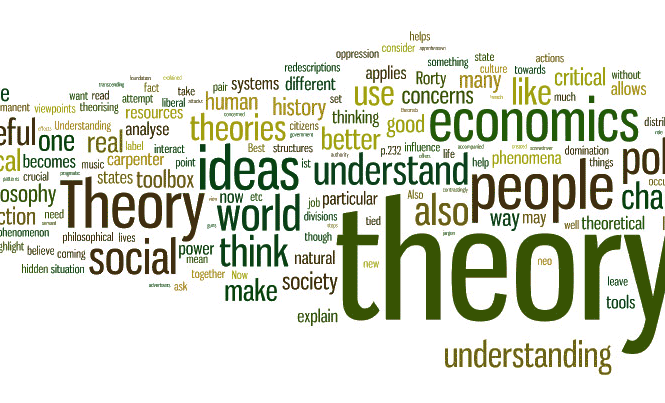Mass communication Theories is the main stream subject of this era and Researchers a lot of research work is doing in this field.
- Magic Bullet Theory/ Hypodermic Needle Theory
Hypodermic needle theory, magic bullet or transmission belt theory is that media message is very powerful and injects into minds of the audience in such a way as a bullet acts rapidly on a body. So it assumes powerful media effects leading to the hypodermic needle or magic bullet approach.
- Limited Effect
In landmark media effects studies, Paul Lazarsfeld, Bernard Berelson, and Hazel Gaudet shift the view of media from powerful to limited effects, this says that media message has not very strong impact and its effects are limited, it depends on audience that how they take the media message.
- Cultivation Theory
Cultivation theory says that media cultivates the minds of the people; this holds that through heavy exposure to television; people begin to view the world similar to the television world. Like emphasizing violence in programs heavy TV viewer perceives the world as a more violent place.
- Agenda Setting Theory
Agenda Setting is basically a theory of strong media effects which says that there are three related agendas as media agenda, public agenda and policy agenda. This suggests that with the passage of time media agenda becomes the public agenda and they are linked with one another.
- Framing Theory
Framing theory is closely interlinked with the agenda setting concept, Framing says the media focus attention on certain issues and then place them within a specific field of meaning. Mass media creates pictures of the world in our minds; framing is also termed as a second level agenda setting.
- Spiral of Silence Theory
This theory is based on the idea that dissidents to a prevailing media-created idea will not speak out against it if they perceive themselves to be in the minority and thus avoid the risk of isolation and rejection. This leads others to keep silent since they believe most people agree with majority.
- Authoritarian Theory
Authoritarian theory says it is necessary to control the media to protect and prevent the people from the national threats through any form communication i.e. information or news. The press is an instrument to enhance the ruler’s power in the country. The authorities have all rights to permit any media and control it by providing license to the media and make certain censorship.
- Libertarian Theory
Libertarian theory says people are more enough to find and judge good ideas from bad, people are rational and their rational thoughts lead them to find out what are good and bad. The press should not restrict anything even a negative content may give knowledge and can make better decision whilst worst situation. The libertarian thoughts are opposite to the authoritarian theory.
- Social Responsibility Theory
Social responsibility theory allows free press without any censorship but at the same time the content of the press should be discussed in public panel and media should accept any obligation from public interference or professional self-regulations or both. The theory gives total media freedom in one hand but the external controls in other hand.
- Soviet Media Theory
Soviet media theory is imitative of Leninist principles which based on the Carl Marx and Engel’s ideology. The government undertakes the total media and communication to serve working classes and their interest. Theory says the state have absolute power to control any media for the benefits of people. They put end to the private ownership of the press and other media.
- Cognitive Dissonance
(Leon Festinger) According to cognitive dissonance theory, there is a tendency for individuals to seek consistency among their cognitions (beliefs, opinions). When there is an inconsistency between attitudes or behaviors (dissonance), something must change to eliminate the dissonance.
- Classical Rhetorical Theory
The origin of classical rhetoric theory can be traced back to the times of ancient scholars such as Plato, Aristotle and Socrates. This Theory developed when people began to identify that there is some kind of influence is made to the listeners. Therefore, the ability for public speaking reaped its magnitude in ancient world.
- Argumentation Theory
Argumentation is a vital factor for communication and it endured in our society for centuries. This theory had its origin in foundationalism, a theory of justification or reasoning in the field of philosophy. But during those days the argumentation was based on oration and logic.
- Gatekeeping Theory
(communication) Gatekeeping is the process through which information is filtered for dissemination, whether for publication, broadcasting, the Internet, or some other mode of communication.
- Modernization Theory
Modernization theory elaborates the development process within the societies. Theory states that the marginalized and underdeveloped societies develop in the same phase with that of other developed countries by providing proper support. This theory developed as the economic, social, and political system of developed in the west European and North American countries which have spread to South America, Asia and Africa, the underdeveloped countries
- Media dependency theory
A systematic approach to the study of the effects of mass media on audiences and of the interactions between media, audiences, and social systems. It was introduced in outline by the American communications researchers Sandra Ball-Rokeach and Melvin DE Fleur in 1976.
- Knowledge Gap
This theory is concerned mainly with “information” and “knowledge” and emphasizes that knowledge is not distributed equally throughout society. As the infusion of mass media information into a social system increases higher socioeconomic status segments tend to acquire this information faster than lower socioeconomic status population segments so that gap in knowledge between the two tends to increase rather than decrease.
- Uses and gratifications theory
UGT is an approach to understanding why and how people actively seek out specific media to satisfy specific needs. UGT is an audience-centered approach to understanding mass communication.
